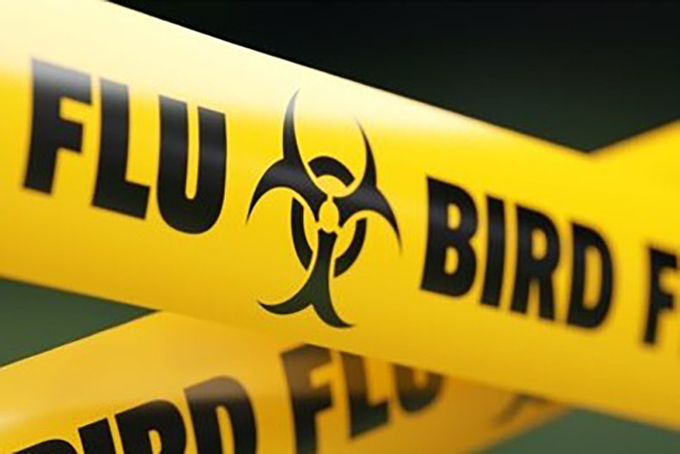June 3, 2025 | 02:49 GMT +7
June 3, 2025 | 02:49 GMT +7
Hotline: 0913.378.918
June 3, 2025 | 02:49 GMT +7
Hotline: 0913.378.918

Report author, Professor Lisa Boden, said there is a need for the sector to better communicate risk to an environment that included not only the poultry industry, but the supply chain, rural economy and the natural environment. Photo: CIEL
And disease control policies must be adaptable to new scientific evidence to help improve the speed of decision-making and subsequent actions, ensuring that up-to-date information is disseminated to all involved.
Those were some of the key messages from a new report jointly produced by the University of Edinburgh’s Global Academy of Agriculture and Food Systems and the Centre of Innovation Excellence in Livestock (CIEL).
A need to better communicate the risk
Report author, Professor Lisa Boden, said the desk review study and stakeholder interviews had shown the need for the sector to better communicate risk to an environment that included not only the poultry industry, smallholders, and backyard flock owners, but the supply chain, rural economy and the natural environment.
The report comes at a time when the UK has faced an epidemic of cases. Since October 2022, there have been 176 recorded cases in poultry (149 in England, 21 in Scotland, 5 in Wales and 1 in Northern Ireland), as well as seeing huge numbers of seabirds affected.
As a result, the government has taken several stringent biosecurity measures, including the Housing Order, demanding birds are kept indoors and updates to the compensation scheme, as well as exploring vaccination alternatives. Vaccine trials are taking place and being intensely monitored in Italy, France, and the Netherlands.
A knowledge gap
Boden said the poultry industry played a vital role in communicating and managing risk and that it was important to identify critical control points.
And she said interviews with farmers had shown a knowledge gap in parts of the industry as to what happens with an outbreak and the legal obligation that farmers face in reporting suspect cases to the Animal Health and Plant Agency (AHPA)
The report highlights some of the critical challenges facing the sector: the severe negative impact of the disease is well-known, but some of the mental health issues facing farmers are less so. There is variable biosecurity implementation on farms and differences in awareness of industry and government guidance and regulations, particularly among backyard flock keepers. The government is trying to address this as part of its consultation, which is looking at adding every keeper of birds to the Poultry Register.
In a briefing to poultry media, Boden said the research had found concerns regarding vaccine development, especially around performance, frequency of vaccine use, whether it would match the bird flu strain circulating and how to differentiate infected birds from those that have been vaccinated. Investment in clinical trials was seen as critical and the need for a strategy around a particular vaccine essential, so that the sector knew whether it would be used to eradicate or reduce the prevalence of the virus.
Variability in biosecurity
Dr Mark Young, head of innovation at CIEL, said the significant degree of variability in biosecurity implementation across the sector due to different perceptions of risk and awareness of regulations and guidance was a concern.
“For future containment of the disease, strict biosecurity is needed on all types of holding, and vigilance and early detection of the disease has to be shared responsibility for poultry producers irrespective of holding size or production system.”
Phil Bicknell, director of CIEL, added that the need for a clear and concise summary of the UK’s current bird flu situation was a key factor in commissioning the report: “Science and innovation were essential to how we successfully live with the risk of bird flu. Research into production systems, vaccine development, advances in genomic sequencing and new technologies to support the rapid detection of the disease could all help manage this disease.
“Government support will continue to be required and enhanced to ensure that all outbreaks are handled promptly and competently.”
(PW)

(VAN) Vikas Rambal has quietly built a $5 billion business empire in manufacturing, property and solar, and catapulted onto the Rich List.

(VAN) Available cropland now at less than five percent, according to latest geospatial assessment from FAO and UNOSAT.

(VAN) Alt Carbon has raised $12 million in a seed round as it plans to scale its carbon dioxide removal work in the South Asian nation.

(VAN) Attempts to bring down the price of the Japanese staple have had little effect amid a cost-of-living crisis.

(VAN) Fourth most important food crop in peril as Latin America and Caribbean suffer from slow-onset climate disaster.

(VAN) Shifting market dynamics and the noise around new legislation has propelled Trouw Nutrition’s research around early life nutrition in poultry. Today, it continues to be a key area of research.

(VAN) India is concerned about its food security and the livelihoods of its farmers if more US food imports are allowed.